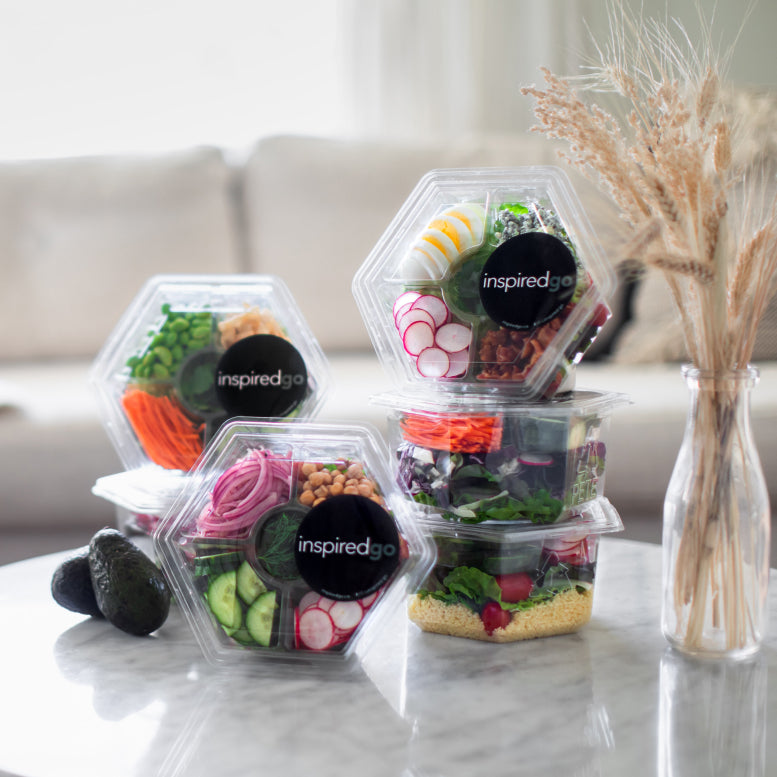What Are The Health Benefits Of A Vegetarian Diet?
Table of Contents
1. The Health Benefits of a Vegetarian Diet
2. Are Eggs and Cheese Allowed on a Vegetarian Diet?
3. What Are Healthy Fats to Eat on a Vegetarian Diet?
4. How Can Vegetarian Meal Delivery Support Long-Term Health Goals?
1. The Health Benefits of a Vegetarian Diet
Switching to a vegetarian diet can have numerous health benefits. Research has shown that vegetarian diets are typically lower in saturated fats and cholesterol, which can reduce the risk of heart disease. They are also high in fiber, which aids in digestion and can help prevent constipation. Additionally, a well-balanced vegetarian diet can provide an abundance of vitamins and minerals, including potassium, vitamin C, and vitamin E. These nutrients can boost the immune system, promote heart health, and improve skin health. However, it's important to ensure a diverse and balanced intake of plant-based foods to meet protein and vitamin B12 needs, which are nutrients often found in animal products. A vegetarian diet, when done right, can be a delicious and nutritious approach to healthy living.
Order fresh salads today →


2. Are Eggs and Cheese Allowed on a Vegetarian Diet?
The inclusion of eggs and cheese in a vegetarian diet depends on the specific type of vegetarianism followed. Lacto-vegetarians consume dairy products but avoid eggs, while ovo-vegetarians include eggs but not dairy. Lacto-ovo vegetarians include both dairy and eggs in their diet. Vegetarian meal delivery services cater to these preferences by offering customizable meal plans that align with individual dietary choices. Protein-rich ingredients such as eggs, paneer, and cheese are incorporated into meals to provide essential amino acids and maintain balanced nutrition. Pre-portioned servings prevent overeating, while nutritional labeling offers transparency regarding protein, fat, and calorie content. With vegetarian meal delivery, customers can easily follow their dietary preferences without worrying about meal preparation or ingredient sourcing.
Choose your salads and schedule delivery →
3. What Are Healthy Fats to Eat on a Vegetarian Diet?
Healthy fats play a critical role in energy production, hormone regulation, and brain function, and vegetarian diets offer numerous sources of these beneficial fats. Foods like avocados, nuts, seeds, olive oil, and dairy products are rich in heart-healthy fats. Vegetarian meal delivery services incorporate these ingredients into pre-prepared meals to ensure a balanced intake of essential fatty acids. Meals are designed to maintain a proper macronutrient balance, supporting overall health and sustained energy. Transparent nutritional labeling allows customers to monitor their fat intake, promoting dietary awareness. By offering ready-to-eat meals packed with healthy fats, vegetarian meal delivery simplifies achieving a balanced diet.
Get fresh salads and snacks delivered →
4. How Can Vegetarian Meal Delivery Support Long-Term Health Goals?
Inspired Go supports long-term health goals by offering nutritionally balanced vegetarian meals crafted with fresh, high-quality ingredients. Each meal is portion-controlled and includes key nutrients such as fiber, plant-based protein, and antioxidants. Subscription services allow customers to schedule consistent weekly deliveries, eliminating disruptions in their dietary routines. Detailed nutritional labeling helps customers monitor their intake and align their meals with specific health goals, whether focused on weight management, energy levels, or overall wellness. By removing the barriers of meal preparation and planning, Inspired Go empowers customers to stay committed to their long-term health objectives through reliable and convenient meal delivery.
Try our fresh, ready-to-eat salads →
Frequently Asked Questions
A vegetarian diet focuses on plant-based foods, eliminating meat, poultry, and fish while including fruits, vegetables, grains, legumes, nuts, and seeds. Depending on the type of vegetarianism, it may also include animal-derived products like dairy and eggs. Popular variations include lacto-ovo vegetarian (includes eggs and dairy) and lacto-vegetarian (excludes eggs but includes dairy). The diet is often chosen for ethical, environmental, or health reasons and supports a nutrient-dense lifestyle when properly balanced.
Vegetarian foods include a wide variety of plant-based options like fruits, vegetables, whole grains, legumes, nuts, and seeds. Dairy products such as milk, cheese, and yogurt, as well as eggs, are included in lacto-ovo vegetarian diets. Vegetarian-friendly dishes range from hearty grain bowls and vegetable curries to pasta, soups, and salads. Many processed foods, such as chips or baked goods, can also be vegetarian, though reading labels is key to avoiding hidden animal-based ingredients.
Yes, many vegetarians eat eggs, depending on their dietary preference. Those following a lacto-ovo vegetarian diet include both eggs and dairy products, while lacto-vegetarians exclude eggs but consume dairy. Eggs are an excellent source of protein, vitamins, and minerals, making them a valuable addition to a vegetarian diet. However, vegans avoid eggs entirely, as their diet excludes all animal-derived products, including dairy and honey.
Vegetarians can meet their protein needs by incorporating a variety of plant-based and animal-free sources. Protein-rich options include legumes (lentils, chickpeas, black beans), tofu, tempeh, nuts, seeds, and whole grains like quinoa. For those who consume dairy and eggs, options like Greek yogurt, cheese, and eggs provide additional high-quality protein. Combining different plant proteins, such as rice and beans, ensures a complete amino acid profile, supporting muscle repair and overall health.
Yes, eggs and cheese are allowed on a lacto-ovo vegetarian diet, which includes both dairy products and eggs alongside plant-based foods. These ingredients are excellent sources of protein, calcium, and other essential nutrients. Lacto-vegetarians exclude eggs but include cheese and other dairy products. Vegans, however, do not consume eggs, cheese, or any other animal-derived products, focusing solely on plant-based foods and alternatives.

